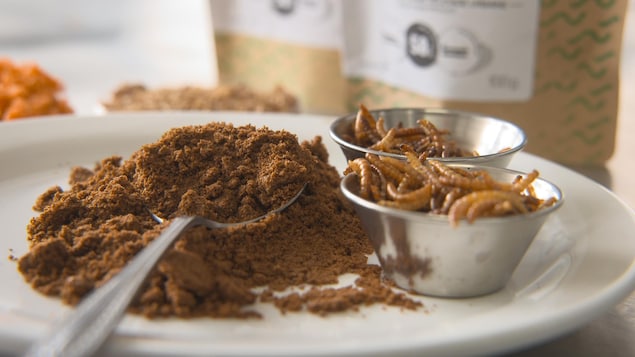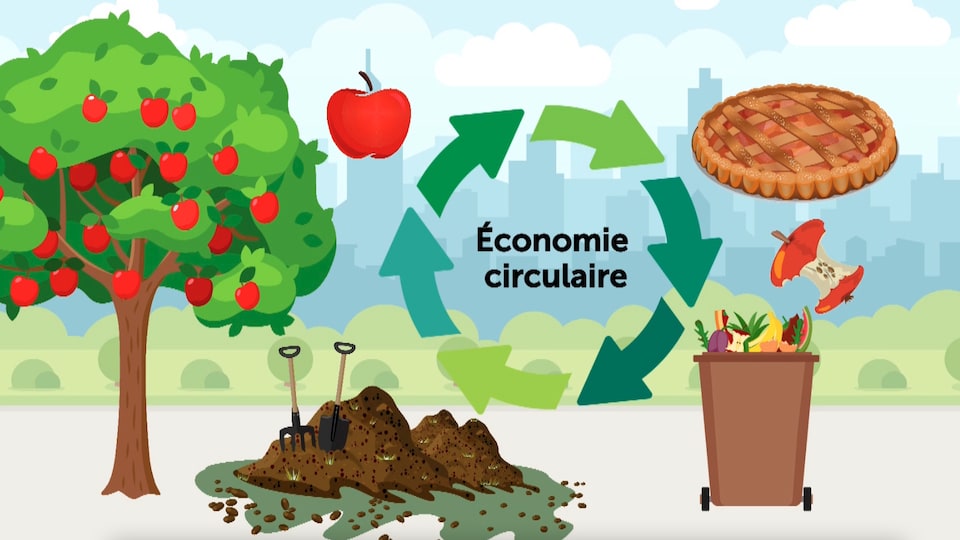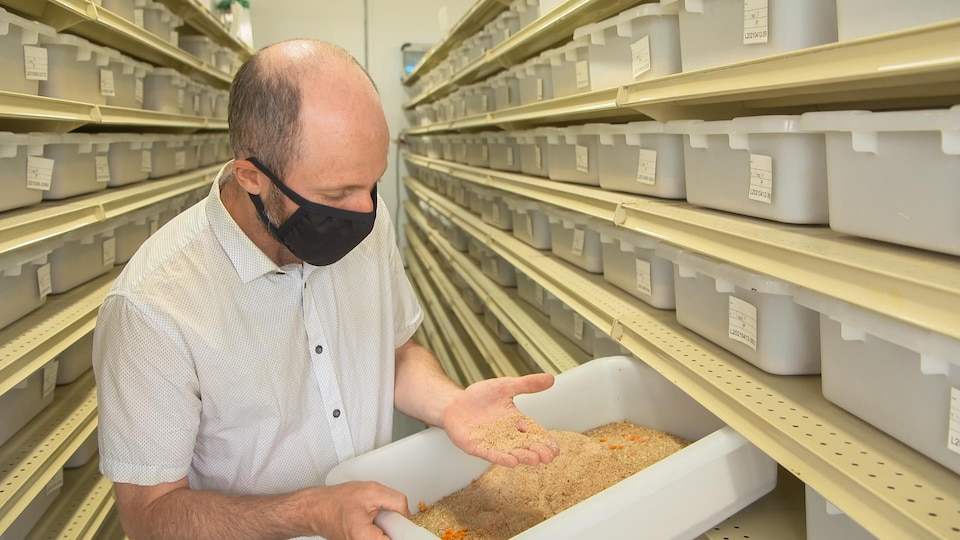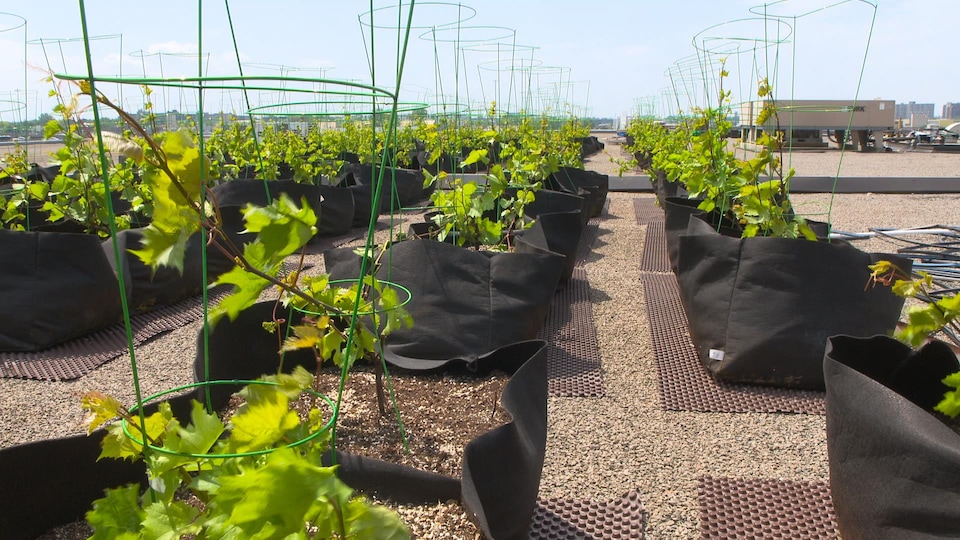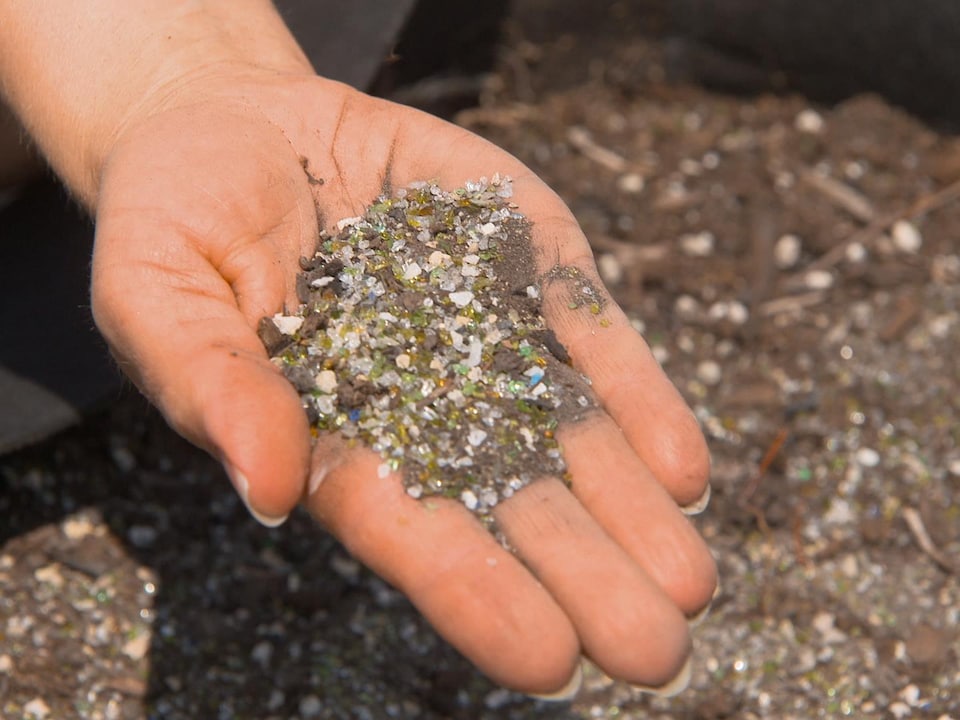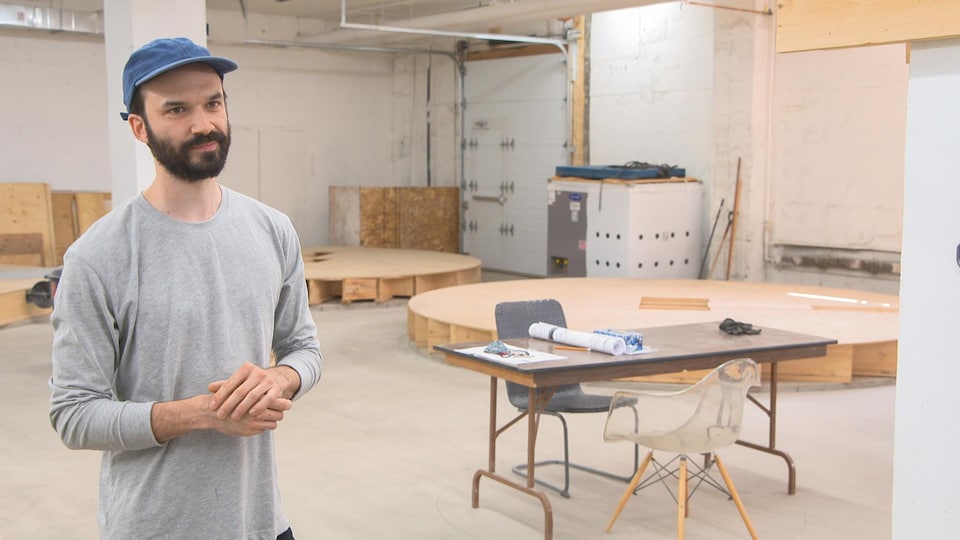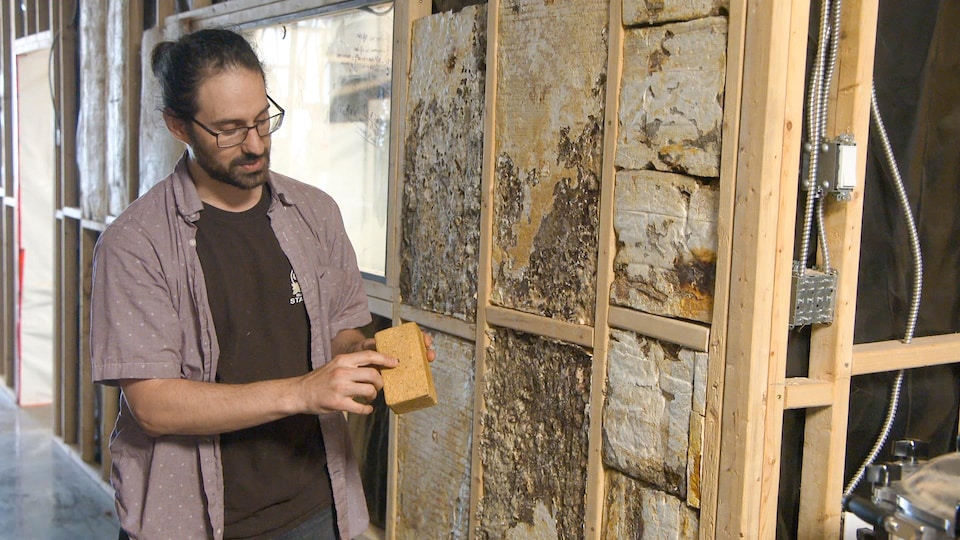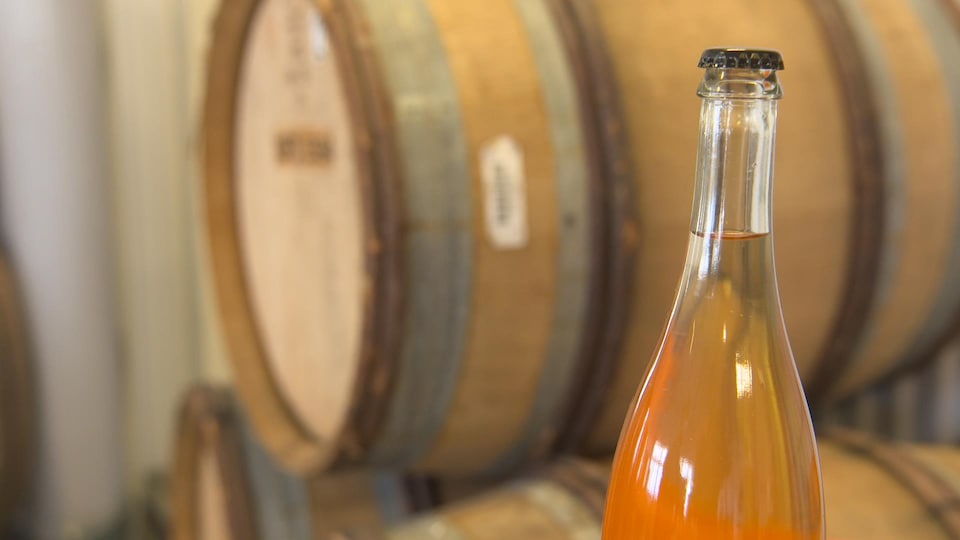Entrepreneurs, scientists, researchers and producers unite to create Centrale Agricole, Quebec’s largest urban agricultural cooperative.
This urban space for food innovation and experimentation focuses on the circular economy…there, all businesses are interconnected.
A little lesson in circular economy
The linear economy, which we know well, consists of four stages: extraction, manufacture, consumption and disposal.
The circular economy, for its part, is a loop. Energy and raw materials are reused throughout the cycle.
In other words, according to the circular economy philosophy, waste is not seen as such, but as abandoned resources worthy of recovery and improvement.
Here are some companies that are rethinking their production methods to better use the resources of their environment.
meal worm farm
Among the four co-founding companies of Centrale Agricole is TriCycle, which has been breeding insects since 2019, and which has continued to grow ever since.
We have 60 million bugs on the farm at all times
says Alexis Fortin, TriCycle’s director of technology and operations. This equates to an annual production of 8 tons of mealworms.
TriCycle feeds insects with food production and processing residues, whether it’s beer fermentation residues, wheat bran from Jerry’s boulangerie, or company-provided fruit and vegetable pulp. From Fresh Juice Loop.
The latter, in addition to producing its juices from unsold fruits and vegetables, is also keen to give a second life to the waste it produces.
Fruit and vegetables are squeezed and juice extracted. But the remaining fiber is still too good to consume. We wanted to reuse it, so we developed, among other things, a great partnership with TriCycle to feed insects from this pulp.
Loop co-founder Julie Poitras Saulnier explains.
The mealworm is grown in this way fine livestock
Which leaves very few traces.
It is almost zero waste as production because the insects will consume the food, and the insects will be harvested later for food.
These mealworms are dried to make flour, or even made into dung for an experimental vegetable garden perched on the rooftop of Centrale Agricole.
rooftop vineyard
Vignes en ville, a research project aimed at studying the behavior of vineyards in an urban environment, has built its fifth vineyard on the rooftop of Centrale Agricole.
It is the largest rooftop vineyard in the world.
The soil used in ponds for growing vines is also The first in the world
, explains Véronique Lemieux, founder and coordinator of Vignes en ville.
The soil of this vineyard is very innovative. We decided to launch a new research protocol to study glass degradation in soil. Sand is a non-renewable natural resource. So we wanted to avoid using sand in our soil. Crushed glass replaces sand.
How can generosity be linked to the circular economy?
We have a great episode because, for example, we drink wine. We put the wine bottle in the recycling bin. The eclectic group is obsessed with these bottles. It happens at a sorting center like Tricentris, which crushes glass. And they send us broken glass, which we incorporate into our soil
, summarizes Veronique Lemieux.
The vine grows in this soil, and its fruits are used to produce wine. So, the full episode
, concluded.
Urban fish farming, the first of its kind in Quebec
Let’s go down a few floors from the agricultural center, downstairs. There is Obercole, Quebec’s first urban fish farm.
Eleven large basins have been installed to accommodate the first Arctic coal eggs as of December 2021.
According to David Dupaul-Chicoine, co-founder of Obercule, between 25 and 30 tons of coal could be produced in the Arctic annually as of November 2022.
The fish farmer intends to recycle 99.5% of the water in the culture system, in order to use 100 to 200 times less than conventional fish farming.
Filtration equipment also makes it possible to remove manure from the water for recovery in the form of compost.
Still with the idea of implementing ecological production for his fish, David Dupaul-Chicoine shows that TriCycle’s mealworms can represent an interesting resource for his production.
We have an interest in doing research with TriCycle, which produces insects. We can replace part of our fish feed with their insects
, as David DePaul-Chequin points out.
Mushrooms for the plate … and construction
David Dupaul-Chicoine Fish Farm is a close neighbor of mushroom lover and specialist Geoffroy Renaud-Grignon.
We need an environment with very humid air. The Obercule generates a lot of moisture thanks to its beautiful ponds
, explains the founder of Mycelium Remédium Mycotechnologies.
For Geoffroy Renaud-Grignon, mushrooms are not only put on the plate. In his laboratories, he works to transform organic materials using mushrooms into new ecological building materials.
More precisely, natural residues such as oats, ground coffee or sawdust can be converted into solid bodies thanks to a series of chemical reactions that cause the fungus, that is, the tissues that make up the fungus.
The company is able to make bricks equivalent to very dense wooden bricks or even building materials that can replace Styrofoam.
It is made from waste, in addition to being compost and compost
, explains Renaud-Grignon proudly.
The dream of this mushroom specialist will be that in the long run, the stalls in the markets where Centrale products will be sold will be made from his own mushrooms.
The apple cider house that restores the rejected fruit
At Cidre Sauvageon, we brew cider made from unused apples and berries picked from the region.
For us, it made sense to have a local in the city, in Montreal, given that we have an orchard in Greater Montreal.
, explains Pauline Macera, co-owner of Cidre Sauvageon.
In fact, Centrale’s circular economy aims to be a local economy, i.e. businesses close the loops by reducing transportation and wasting resources.
Hence we also want to create synergies with all Centrale members
Pauline Macera, who is considering wine recovery, is adding leftover wine production, for inclusion in cider production.
At Centrale Agricole, the circulation of ideas never stops.
La Centrale Agricole is colonizing the entire building to become the largest urban agricultural cooperative in the world.
, concludes proudly by Louise Hinault Ether, Director of Research, Development and Innovation at TriCycle.
Here we are, full circle!
With information from Johan Despens

“Alcohol scholar. Twitter lover. Zombieaholic. Hipster-friendly coffee fanatic.”

